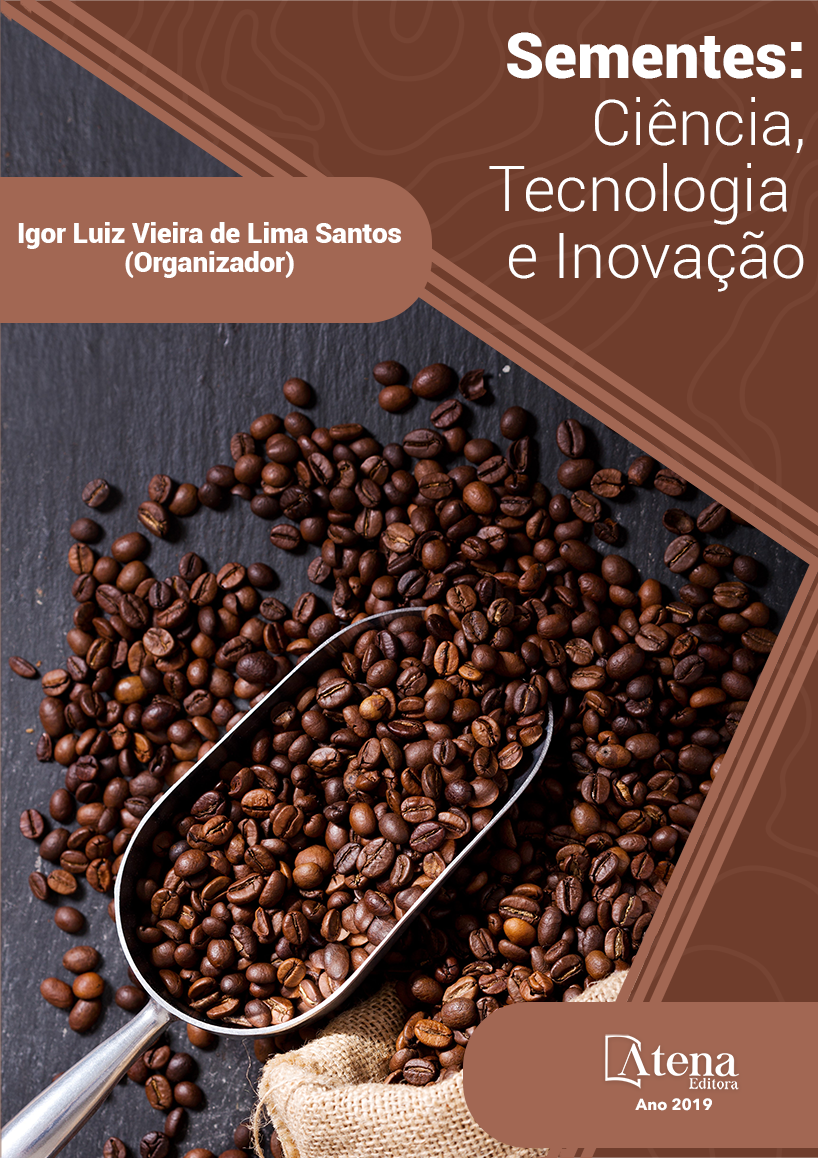
DESEMPENHO DE SEMENTES DE SOJA EM FUNÇÃO DO TAMANHO E PERÍODO DE ARMAZENAMENTO
O objetivo do presente trabalho foi
avaliar o comportamento bioquímico e fisiológico
de sementes de soja de diferentes tamanhos,
produzidas em Abelardo Luz – SC, e submetidas
ao armazenamento. O delineamento utilizado
foi o inteiramente casualizado, em esquema
fatorial 2×4, sendo dois tamanhos de sementes
(5,5 e 6,5 mm de diâmetro) e 4 períodos de
armazenamento (0, 2, 4 e 6 meses). Foram
utilizadas sementes do cultivar MG 410. Ao final
de cada período a qualidade das sementes foi
avaliada pelos testes de peso de mil sementes,
grau de umidade, condutividade elétrica,
germinação, envelhecimento acelerado e
atividade da peroxidase. Os dados foram
analisados através do programa estatístico
Sisvar. De maneira geral, a qualidade fisiológica
e bioquímica das sementes sofreu influência em
relação ao tamanho das sementes no decorrer
do armazenamento. Contudo, o período
de armazenamento foi o que proporcionou
diferença estatística em praticamente todas as
variáveis analisadas, sendo que, o potencial
fisiológico diminuiu ao longo da armazenagem.
Apenas para a peroxidase não foram
observadas diferenças no potencial fisiológico
das sementes. Sendo assim, concluiu-se que
o vigor das sementes decresceu conforme elas
permaneceram armazenadas e que o tamanho
das sementes influenciou na qualidade
fisiológica durante o armazenamento das
mesmas.
DESEMPENHO DE SEMENTES DE SOJA EM FUNÇÃO DO TAMANHO E PERÍODO DE ARMAZENAMENTO
-
DOI: 10.22533/at.ed.9761903094
-
Palavras-chave: Glycine max, influência, comportamento, potencial fisiológico.
-
Keywords: Glycine max, influence, behavior, physiological potential.
-
Abstract:
Aim of the present work was to
evaluate the biochemical and physiological
behavior of soybean seeds of different sizes,
produced in Abelardo Luz - SC, and submitted
to storage The design was completely
randomized, in a 2x4 factorial scheme, with two
seed sizes (5.5 and 6.5 mm diameter) and four
storage periods (0, 2, 4 and 6 months). Seeds
of the cultivar M 6410 were used. At the end
of each period the seed quality was evaluated
by the tests of thousand seed weight, moisture
content, electrical conductivity, germination,
accelerated aging and peroxidase activity. The data were analyzed through the
statistical program Sisvar. In general, the physiological and biochemical quality of the
seeds influenced the seed size during storage. However, the storage period was the
one that provided statistical difference in practically all the analyzed variables, and the
physiological potential decreased during the storage. Only for the peroxidase did not
observe differences in the physiological potential of the seeds. Thus, it was concluded
that seed vigor decreased as they remained stored and that seed size influenced the
physiological quality during storage.
-
Número de páginas: 15
- Cristina Fernanda Schneider
- Leticia Delavalentina Zanachi


